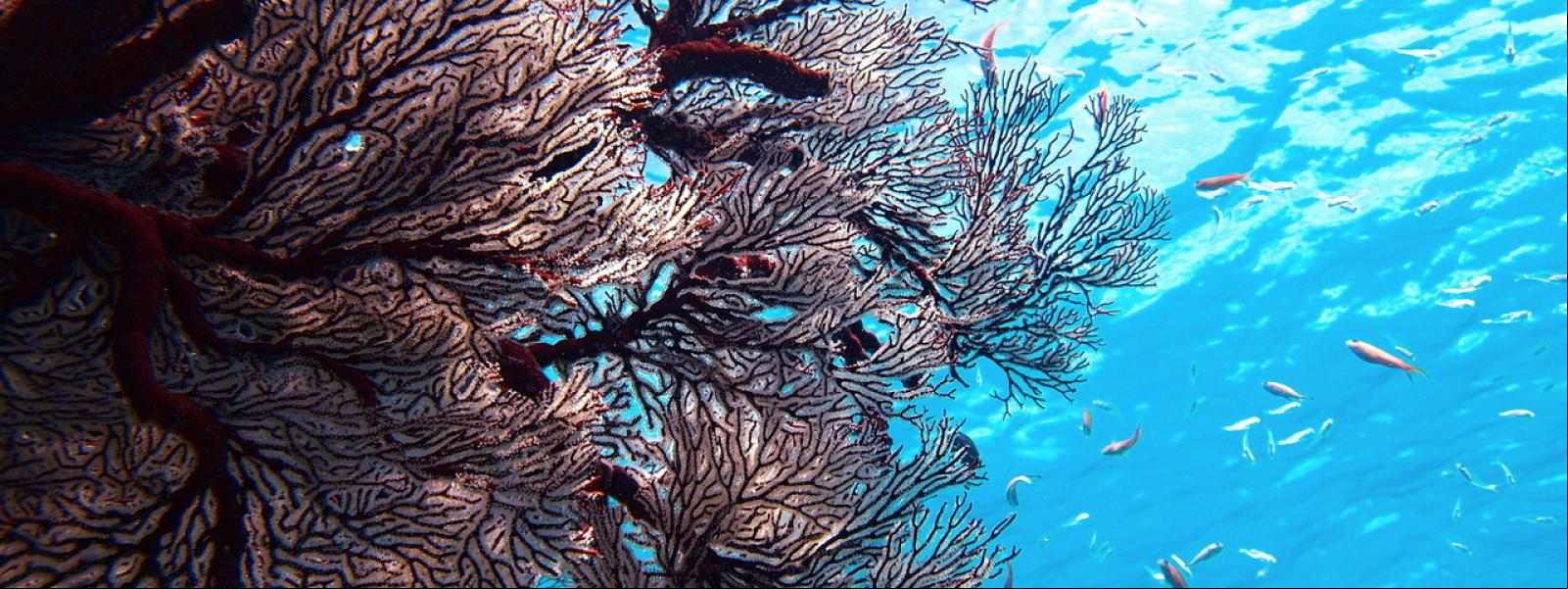
Press Center

Statement on the Assassination of Dilma Ferreira Silva, leader of Brazil’s Movement of Dam-Affected Peoples
In the face of the brutal crime committed on March 22nd against a coordinator of the Movement of Dam-Affected Peoples in Brazil, the undersigned human rights and environmental organizations call on Brazilian authorities and multilateral organizations to ensure that the country’s obligations regarding the protection of human rights and environmental defenders are enforced. With deep sadness and indignation, we received the news that Dilma Ferreira Silva, a regional coordinator of Brazil’s Movement of Dam-Affected Peoples (MAB), together with her husband Claudionor Costa da Silva and Hilton Lopes, a friend of the family, were assassinated on Friday, March 22nd in the Amazonian state of Pará. The bodies of the three victims were found in her residence with signs of torture. Dilma Ferreira Silva was a prominent activist and recognized leader who, for more than three decades, fought for the rights of the people affected by the Tucuruí mega-hydroelectric dam project on the Tocantins River of the Brazilian Amazon, built during the country’s military dictatorship 1964-1985), provoking the displacement of an estimated 32,000 people, along with serious environmental damage. This is not the first case of a brutal murder perpetrated against a human rights defender in the region of the Tucurui dam. In April 2009, Raimundo Nonato do Carmo, a union leader who fought on behalf of those whose lives were ruined by the Tucuruí dam was shot seven times by two men on a motorcycle as he walked out of a supermarket on the street in which he lived in the town of Tucuruí. Dilma dedicated her life to promoting national policies that would effectively take into the rights of dam-affected peoples, with due attention to gender issues that particularly affect the rights of women. Dilma Ferreira lived in the rural settlement of Salvador Allende, where land titles were issued for family farmers by the federal government in 2012, as a result of a popular mobilization of the Movement of the Landless Workers (MST), with from MAB. However, the area continued to be coveted by land grabbers (grileiros) that invade and seize control of public and community lands. One such example is Fernando Ferreira Rosa Filho (aka ‘Fernandinho’) arrested by the civil police force of the state of Pará as the principal suspect in the triple homicide of Dilma Ferreira, Claudionor Costa da Silva and Hilton Lopes. The assassination of Dilma Ferreira Silva is evidence of the grave situation faced by human rights and environmental defenders in Brazil, a country that tops the global ranking in violence practiced against defenders, with one person murdered every six days in 2017. The incoming istration of President Jair Bolsonaro has intensified recent attempts to undermine Brazil’s progressive legislation on environmental protection and human rights - especially those of indigenous peoples, quilombolas (descendants of African slaves), family farmers and other traditional populations. Such attempts have often clashed with Brazil’s progressive Federal Constitution, approved in 1988 during a period of redemocratization that followed military rule. Backsliding on public policies, together with public statements that incite violence in conflictive areas, are seriously increasing the risks faced by human rights and environmental defenders such as Dilma Ferreira Silva. The undersigned human rights and environmental organizations express our solidarity with the family of Dilma and the Movement of Dam-Affected Peoples (MAB). Without a doubt, her assassination is a huge loss for the defense of the environment and human rights in the Amazon. We stand with the UN High Commissioner on Human Rights in demanding a complete, independent and imparcial investigation of the assassination of Dilma Ferreira Silva, as well as the exemplary punishment of those that carried out and ordered this horrendous crime. Moreover, we call on Brazilian authorities to ensure that the country’s domestic legislation and international obligations regarding the protection of human rights and environmental defenders are fully implemented, including preventative action to avoid further acts of violence. Signed, 1. 350.org 2. Aborigen-Forum 3. AMAR - Associação de Defesa do Meio Ambiente de Araucária 4. Amazon Watch 5. APREC Ecossistemas Costeiros 6. Arctic Consult 7. Articulação Antinuclear Brasileira 8. Asociación Interamericana para la Defensa del Ambiente - AIDA 9. Associação Mineira de Defesa do Ambiente – Amda 10. Association green alternative Georgia 11. Association of Journalists-Environmentalists of the Russian Union of Journalists 12. BAI Indigenous Women's Network in the Philippines 13. Bank Information Center (BIC) USA 14. Biodiversity Conservation Center 15. Both ENDS 16. Bretton Woods Project 17. Buryat Regional Association for Baikal 18. Business & Human Rights Center 19. Center for International Environmental Law - CIEL 20. CIDSE - International family of Catholic social justice organizations 21. Coalition for Human Rights in Development 22. Colegiado Mar RBMA/Reserva da Biosfera da Mata Atlântica - Grupo Conexão Abrolhos -Trindade 23. Coletivo de Mulheres do Xingu 24. Coletivo de Mulheres Negras de Altamira 25. Comisión Ecumenica de Derechos Humanos 26. Comité Ambiental en Defensa de la Vida 27. Conectas Direitos Humanos 28. Conseil Régional des Organisations Non Gouvernementales de Développement en RDC 29. Conselho Indigenista Missionário - CIMI 30. Corporación SOS Ambiental 31. Crescente Fértil 32. Derecho Ambiente y Recursos Naturales - DAR 33. Derechos Humanos y Medio Ambiente - DHUMA 34. Derechos Humanos y Medio Ambiente de Puno - Perú 35. DKA Austria 36. ECOA - Ecologia e Ação 37. Ecological Center DRONT 38. Ecolur Information NGO 39. Environmental Investigation Agency 40. Fastenopfer Switzerland 41. Focsiv - Federation of Italian Christian NGOs 42. Fórum em Defesa de Altamira 43. Foundation Sami Heritage and Development 44. Frente por uma Nova Política Energética para o Brasil 45. Front Line Defenders 46. Fundação Avina 47. Fundação Grupo ESQUEL 48. Future for Everyone 49. Global Witness 50. Green Dubna 51. Green Peace Brasil 52. ONG Guajiru 53. In Difesa Di - per i Diritti Umani e chi li difende 54. Indigenous Peoples Movement for Self-determination and Liberation (IPMSDL) 55. Instituto Igarapé 56. Instituto Terramar 57. Institutos Ethos 58. International Indigenous Fund for Development and Solidarity "Batani" dos EUA 59. International Land Coalition Secretariat 60. International Rivers 61. Katribu Kalipunan ng Katutubong Mamamayan ng Pilipinas (Katribu national alliance of indigenous peoples in the Philippines) 62. Kazan Federal University 63. Latin America Working Group 64. London Mining Network 65. Lumiere Synergie pour le Developpement 66. MAB - Movimento dos Atingidos por Barragens 67. Maryknoll Office for Global Concerns 68. MISEREOR 69. Movimento Nacional de Luta pela Moradia (MNLM) 70. Movimento Negro 71. Movimento Paulo Jackson - Ética, Justiça, Cidadania 72. Movimento Tapajós Vivo 73. Movimento Xingu Vivo para Sempre 74. Movimiento de Afectados por Represas de America Latina - MAR 75. O Movimento Nacional das Cidadãs Posithivas (MN) 76. Oyu Tolgoi Watch 77. Pax Christi - Comisión Solidaridad Un Mundo Alemania 78. Pax Christi Internacional 79. Pax Christi Toronto 80. Projeto Saúde e Alegria 81. Protection International 82. Public Interest law Center (PILC/CHAD) 83. Red de Comités Ambientales del Tolima 84. Red de Género y Medio Ambiente de México 85. REDE GTA 86. Resource Rights Africa da Uganda 87. Rivers without Boundaries International Coalition 88. Rivers without Boundaries - Mongolia 89. SAPÊ - Sociedade Agrense de Proteção Ecológica 90. SCIAF - Scottish Catholic International Aid Fund 91. Serpaj Chile 92. Siberian Environmental Organization 93. Socio-ecological Union International 94. Tatarstan Organization of the All-Russian Society for the Conservation of Nature 95. Terra 1530 96. The Canadian Catholic Organization for Development and Peace/Caritas 97. The Society for Threatened Peoples International STPI - Gesellschaft für bedrohte Völker-International, GfbV-International 98. The Volunteer Movement Save Utrish 99. Toxisphera - Associação de Saúde Ambiental 100. Tutela Legal Maria Julia Hernández 101. Uma Gota no Oceano 102. Uniafro Brasil 103. Washington Office on Latin America - Wola 104. WoMin African Alliance 105. World Wide Fund for Nature – WWF/Brasil
Read more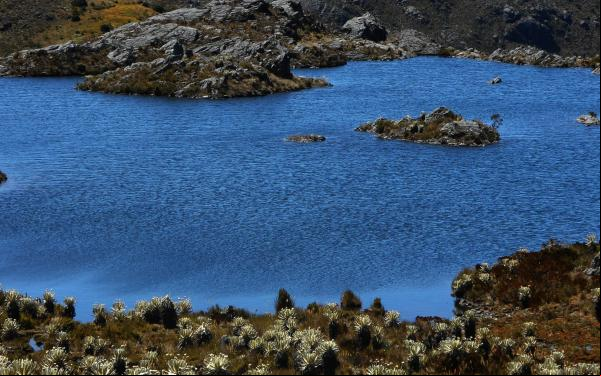
Organizations ask the UN to intervene in the protection of the Santurbán páramo, at risk from mining
They request that the United Nations Special Rapporteur on the Rights to Drinking Water and Sanitation prepare a report on the case, visit the site, and the Colombian government in taking the necessary actions to protect the ecosystem, an important source of water for millions of people, from the dangers of mining. Bucaramanga, Colombia. Civil society organizations in Colombia sent a communique to Léo Heller, United Nations Special Rapporteur on the Rights to Drinking Water and Sanitation. In it, they warn that their rights are at serious risk in the face of proposed mining projects in or near the Santurbán páramo, a water source for more than 10 municipalities and 3 large cities. They request that the Rapporteur prepare a report on the case, visit the site, and the Colombian government in protecting that ecosystem. Actions and omissions by the Colombian government have allowed the development of mining projects that threaten the availability and quality of water provided by the páramo. The government’s protection of the páramo did not include the entire ecosystem, leaving a part of it unprotected, and did not allow for public participation. As a result, the Constitutional Court ordered the government to redo the process of delimiting the páramo. The submission details: the process of defining the boundaries of the Santurbán páramo; the importance of that process for the environment and the enjoyment of the right to water in Colombia; the legal framework for the protection of páramos in the country; and the development of projects in or near the site. It also outlines associated environmental impacts or threats, including a decrease in the quality and quantity of water, contamination due to the use of explosives, a decrease in air quality, an increase in noise level, and the permanent loss of habitats. Likewise, the submission details the impacts of Investor State Dispute Settlement (ISDS) claims on governmental decisions to protect their water sources. Several mining companies have tried for more than 15 years to extract gold from the Santurbán páramo. Some of those are Canadian companies, who are currently using this arbitration process to demand hundreds of millions of dollars from the Colombian government in compensation for their “lost” profits. The organizations ask that the Rapporteur monitor the situation in the Santurbán páramo and urge the Colombian government to comply with its international obligations in relation to the right to water. Find more information on the case here. press s: Alix Mancilla, Comité para la Defensa del Agua y el Páramo de Santurbán, [email protected], +57 311 2439273 (Spanish only) Carlos Lozano, AIDA, [email protected], +57 300 56 40 282 Carla García, CIEL, [email protected], +1 202 374 2550 Kirsten scone, MiningWatch Canada, [email protected], +14373459881 Kristen Genovese, SOMO, [email protected], +31 65 277 3272
Read more
World Bank Arbitration Tribunal Refuses to Listen to Those Affected by Mining in Santurbán, Colombia
The World Bank’s International Center for Settlement of Investment Disputes (ICSID) has declined to accept an Amicus Curiae that was to be presented by the Committee for the Defense of Water and the Páramo of Santurbán and allied international organizations. Bucaramanga, Bogotá, Washington, Ottawa, Amsterdam. National and international civil society organizations rebuffed the International Centre for Settlement of Investment Disputes’ (ICSID) refusal to accept an Amicus Curiae within the process of the ongoing international arbitration brought forth by Canadian mining company Eco Oro Minerals Corp. against Colombia. The arbitration centre is hearing the ongoing international arbitration put forth by the Canadian company in question against the Andean nation. The company is attempting to pursue its Angostura gold mining project in the Santurbán páramo, located in the northeast of the country. The arbitration questions the decisions taken by the Colombian State to protect its páramos, high mountain wetlands that are a natural source of water for 70% of its inhabitants. The arbitration is being heard at the ICSID, an organization dependent on the World Bank that is in charge of the resolution of disputes between investors and States. Colombia could be condemned to pay $746 million US dollars, an unprecedented sanction for the country. “At a time when Latin American countries are embracing the principles of environmental democracy with the adoption of the Escazú Agreement, ICSID is going in the opposite direction. It is regrettable that in the midst of the regional movement for transparency and participation, ICSID has opted to constrict itself even more. In doing so, it is only generating more anger and distrust, not only in the face of this mechanism, but also in the face of the whole system of Investor-State Arbitration worldwide,” stated Carla García Zendejas, Senior Attorney at the Center for International Environmental Law (CIEL). “The communities affected by mining in Santurbán have to be heard and can provide crucial elements for the case,” said Carlos Lozano, Senior AIDA Attorney. The organizations consider that the Committee for the Defense of Water and the Páramo of Santurbán has a significant interest in the outcome of the process and that they could have provided expertise to the arbitration tribunal, which would have been helpful for a better decision in the case. In the same way, they urge ICSID to expand citizen participation and make its decision-making processes more transparent. This is transcendental for the public interest of the countries whose governments are subject to its jurisdiction. Find more information on the case here. PRESS S: Alix Mancilla, Comité para la Defensa del Agua y el Páramo de Santurbán, [email protected], +57 311 2439273 Carla García Zendejas, CIEL, [email protected], +1 202 374 2550 Carlos Lozano Acosta, AIDA, [email protected], +57 300 56 40 282 Kirsten scone, MiningWatch Canada, [email protected], +14373459881 Kristen Genovese, SOMO, [email protected], +31 65 277 3272, Manuel Perez Rocha, Institute for Policy Studies, [email protected] +1 240 838 6623
Read more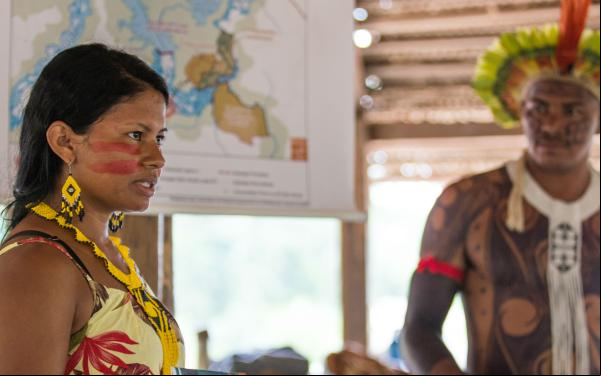
Inter-American Commission urges Brazil to address damages to indigenous peoples caused by Belo Monte Dam
Following its visit to Brazil, the Inter-American Commission on Human Rights called the attention of authorities and civil society to the urgent need to address repeated violations of the rights of indigenous communities. The Commission highlighted the case of the Mïratu de Paquiçamba community, which has been affected by the construction of the Belo Monte Dam. Rio de Janiero, Brazil. Concluding its visit to the country, the Inter-American Commission on Human Rights (IACHR) urged Brazilian authorities and society in general to recognize, address, and quickly resolve repeated violations of the human rights of indigenous communities. The Commission emphasized the case of the Mïratu indigenous community, affected by the environmental damages caused by the construction of the Belo Monte Dam. In Brazil, indigenous communities “suffer from frequent incidents of violence and lack of attention from public services, in addition to increased difficulties and obstacles surrounding claims to their lands,” said Commissioner Antonia Urrejola Noguera, IACHR Rapporteur for Brazil, while presenting the Commission’s preliminary conclusions. “Brazil has been one of the largest violators of the human rights of indigenous communities. In their meeting with the Commission, the Brazilian Indigenous Communities Organization (APIB) presented these cases and expressed its concern over the current political landscape, in which a discourse of hatred and racism has been growing, even among government institutions,” said Luiz Eloy Terena, APIB’s legal advisor. On November 7, the Commission’s delegation visited Mïratu Village, located in the Paquiçamba indigenous region in the state of Pará. Mïratu is one of the indigenous communities affected by the Belo Monte Dam. It was the first time the Commission visited that area. There, the Commission heard testimonies from indigenous people and fishermen, who are fighting to maintain their traditional way of life despite damages including: the death of thousands of fish; the pollution of the Xingú river; forced displacement from their lands without adequate relocation; and the development of culturally inappropriate projects. Village leaders reported that those damages have disproportionately affected women and children. The Commission also heard from representatives of Altamira, the city nearest the dam. “We’d like to highlight the importance of the Commission’s historic visit to Mïratu Village, and recognize the negative impacts that the Belo Monte Dam has had on the human rights of the people of the Xingu River basin,” said Astrid Puentes Riaño, co-director of the Interamerican Association for Environmental Defense (AIDA). “It is now up to the government of Brazil to adopt the decisions and recommendations of the Commission, complying with the rule of law and protecting the people of their country.” During the visit, those affected by the dam were especially concerned over next year’s scheduled implementation of a plan to manage the flow of the Xingú River. Known as a consensus hydrogram, it would divert the water that indigenous and riverine communities, as well as plants and animals, rely on to survive. “The commissioners had the opportunity to confirm the severity of the impacts and the understand the urgent need to revise the criteria used to define the residual flow that the Xingu must maintain in order to guarantee the subsistence and culture of indigenous and riverine communities in the Vuelta Grande region,” said Bivany Rojas from the Socio-environmental Institute (ISA). In 2011, communities along the Xingu—represented by AIDA, the Paranese Society for the Defense of Human Rights (SDDH), and Justiça Global—filed a complaint against Brazil, bringing the case in front of the Commission. That same year, the Commission granted precautionary measures to affected indigenous communities. The case formally began in December 2015, and participating organizations presented final arguments in May of this year. Based on those and the arguments put forward by the the Brazilian State, the Commission will publish a report concluding whether human rights violations occurred from the construction of the Belo Monte Dam. They may then decide to issue recommendations for Brazil to remedy those damages. Demonstrating progress and a respect for the rights of indigenous communities—in cases like the Xucuru, the Xingu, and Guyraroka peoples—represents an important opportunity to strengthen rule of law and embrace progress in Brazil. press s: Victor Quintanilla (Mexico), AIDA, [email protected], +521 5570522107 Isabel Harari (Brazil), ISA, [email protected], +5561998261213
Read more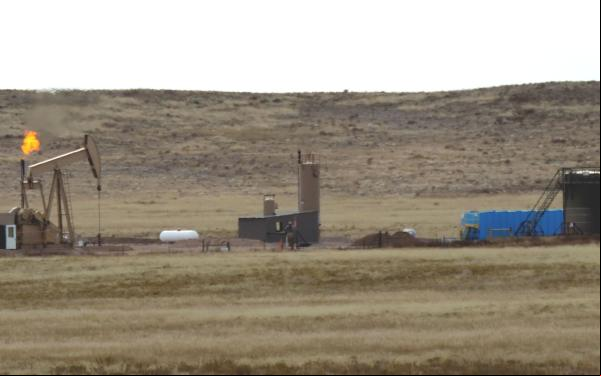
UN Committee recommends Argentina “reconsider” the use of fracking
The Committee on Economic, Social and Cultural Rights of the United Nations expressed its concern about Argentina’s intention to exploit unconventional oil and gas reserves in Vaca Muerta, one of the world’s largest shale deposits. It recommended the goverment reconsider those plans to ensure compliance with the nation’s international commitments on climate change. Geneva, Switzerland. The Committee of Economic, Social and Cultural Rights of the United Nations recommended that Argentina reconsider its plans for the large-scale exploitation of shale gas and oil in Vaca Muerta, one of the world’s largest deposits of unconventional hydrocarbons. The Committee expressed its concern after reviewing the nation’s fourth report to the Universal Periodic Review on human rights, encouraging the government to reconsider the use of fracking in order to ensure compliance with its international obligations on climate change. "The Committee is concerned that this hydraulic fracturing project contradicts the State’s commitments to the Paris Agreement, and would have a negative impact on global warming and the enjoyment of economic and social rights by the global population and future generations," read the concluding observations on Argentina's report, approved by the Committee at its 64th session, which took place from September 24 to October 12, 2018. The Committee urged the State "to promote alternative and renewable energies, reduce greenhouse gas emissions and establish national targets with benchmarks defined over time." The Committee also expressed concern about the lack of adequate evaluation of fracking’s negative impacts on the environment and human health, and about the absence of prior consultation with affected local populations. In that sense, the Committee entrusted the Argentine State to: "... adopt a regulatory framework for fracking that includes assessments of its impact in all provinces, preceded by consultations with affected communities, and with appropriate documentation of its effects on air and water pollution, radioactive emissions, risks to health and safety at work, its effects on public health, noise pollution, light and stress, potential seismic activity, threats to agriculture, soil quality, and the climate system." The UN Universal Periodic Review is a process that offers each State the opportunity to declare what measures it has adopted to improve the human rights situation in the country and to comply with its obligations in this area. Its objective is to improve that situation and address human rights violations wherever they occur. PRESS S: Víctor Quintanilla (Mexico), AIDA, [email protected], +5215570522107 Fernando Cabrera, Opsur, [email protected], +5492995864313
Read more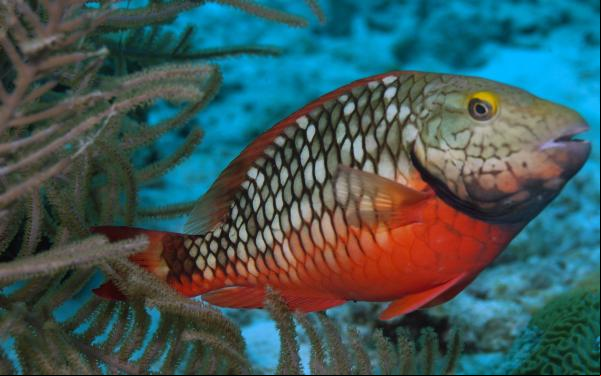
Organizations request Mexico list parrotfish as protected species
Parrotfish are vital to the health of coral reefs, and the Mexican State has an obligation to protect them. In a letter to the government, AIDA outlined the international obligations Mexico has to preserve its coral reefs, requesting that ten species of parrotfish be included in the nation’s list of protected species—a proposal spearheaded by the Healthy Reefs Initiative. Mexico City. Using arguments based in international law and knowledge of environmental treaties, the Interamerican Association for Environmental Defense (AIDA) requested that the Mexican government include ten species of parrotfish in the national registry of protected species, under Official Mexican Law 059, which is currently being updated. AIDA made the request through a letter to the National Advisory Committee for the Normalization of the Environment and Natural Resources, in of a proposal the Healthy Reefs for Healthy People Initiative made in September in coordination with Casa Wayuu, the Kanan Kay Alliance and the Mexican Center for Environmental Law (CEMDA). “The species of parrotfish we are trying to protect play a vital role in the survival of coral reefs because they feed on algae which otherwise deprive the coral of light and oxygen,” said AIDA attorney Camilo Thomson. “Populations of these fish have declined drastically due to habitat degradation, pollution and climate change. Studies done by the Health Reefs Initiative, among others, have shown that 60 percent of the coral reefs in the Mexican Caribbean are in either poor or critical condition.” The organizations are calling for the following species to be listed under some category of risk in Official Mexican Law 059: the stoplight parrotfish (Sparisoma viride), the rainbow parrotfish (Scarus guacamaia), the blue parrotfish (Scarus coeruleus), the midnight parrotfish (Scarus coelestinus), the queen parrotfish (Scarus vetula), the princess parrotfish (Scarus taeniopterus), the striped parrotfish (Scarus iseri), the redband parrotfish (Sparisoma aurofrenatum), the redtail parrotfish (Sparisoma rubipinne), and the yellowtail parrotfish (Sparisoma chrysopterum). The letter outlines the treaties and conventions that oblige the Mexican State to adequately fight threats to species requiring special protection—species like herbivorous fish, which are vital for the health of Caribbean reefs and other marine ecosystems. These agreements include the Convention for the Protection and Development of the Marine Environment in the Wider Caribbean Region (also known as the Cartagena Convention), the United Nations Convention on the Law of the Sea, the Convention on Biological Diversity, the Ramsar Convention, the Convention concerning the Protection of World Cultural and Natural Heritage, the Tulum Declaration, and the International Coral Reef Initiative. “The letter also mentions the Advisory Opinion on human rights and the environment issued by the Inter-American Court of Human Rights,” Thomson added. “In that decision, the Court strengthens States’ obligations to protect human rights and acknowledges the close relationship that has with environmental protection.” Despite serving as fish hatcheries and natural barriers against hurricanes—among other key functions—coral reefs are very fragile and vulnerable to climate change, the consequences of which include ocean acidification, sea level rise and algal blooms. The latter are caused by untreated or inadequately treated wastewater being pumped into the Caribbean, and other forms of marine pollution. “The most recent report from the Intergovernmental on Climate Change (IPCC) warned that the warming of the planet’s average temperature by more than 1.5 degrees Celsius would result in the destruction of reefs,” explained Melina Soto, Mexico coordinator for the Healthy Reefs Initiative. “It is therefore urgent States adopt adequate measures to preserve coral reefs, and one way to do that is through the protection of herbivorous fish.” Find more information about the case here. PRESS S: Victor Quintanilla (Mexico City), AIDA, [email protected], +521 5570522107 Marisol Rueda Flores (Playa del Carmen), Healthy Reefs for Healthy People, [email protected],+521 9848770815
Read more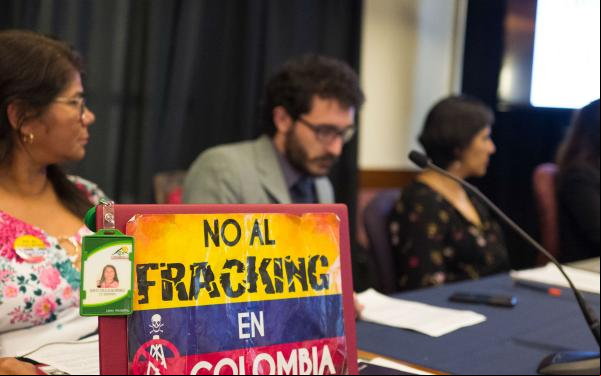
Civil society warns Inter-American Commission of human rights violations caused by fracking in Latin America
Boulder, Colorado. Representatives of communities and organizations from across Latin America testified before the Inter-American Commission on Human Rights this week on the impacts that hydraulic fracturing (fracking) has on human rights and the environment. The hearing—responding to a petition signed by more than 126 organizations from 11 countries of the Americas—was held in Boulder, Colorado this week as part of the Commission’s 169th period of sessions. The principal requests to the Commission, and the Rapporteurs from various countries, were to urge the States to adopt efficient and opportune measures to prevent human rights violations resulting from the exploration and exploitation of hydrocarbons, and to apply the precautionary principal in the face of fracking’s environmental damages. “In Latin America, fracking been carried out without informing or adequately consulting the affected populations, thereby violating their right to information, participation, prior consultation and consent,” explained Liliana Ávila, Senior Attorney with the Interamerican Association for Environmental Defense (AIDA). “Fracking’s demand for water competes with the use of water for human consumption, and the contamination it causes in the water, soil and air seriously impacts the right to a healthy environment and compromises the effective enjoyment of other rights—including a dignified life, personal integrity, health, food, water and adequate housing.” At the hearing, it was emphasized that women disproportionately suffer the impacts of fracking due to potential harm to their reproductive health, and since women are traditionally responsible for collecting water for use in their homes. Referring to the experience of the Mapuche communities of Argentina, Santiago Cané of the Environment and Natural Resources Foundation (FARN) stressed, “Fracking produces acts of violence against those who defend the environment and their rights.” “Institutionally, we can talk about the criminalization of social protest as one form of intimidation to eliminate the resistance to fracking projects,” he explained. “The prosecution of criminal cases against communities leaders that oppose the development of fracking has become an institutional media campaign that seeks to promote the idea that Mapuche communities are part of a terrorist group.” In Mexico, “specifically in the municipality of Papantla, Veracruz—which according to freedom of information requests is the city with the greatest number of fracking pools in the country—where the population is primarily the Totonac people, this exploitation technique has led to the diversion of springs and the drying up of artisanal wells. Many communities have lost their natural sources of water and have seen their health compromised and their living conditions deteriorate,” explained Alejandra Jiménez of the Mexican Alliance Against Fracking. Dorys Gutiérrez, of the Colombian organization Corporation for the Defense of Water, Territory and Ecosystems, noted that: “In Europe, 18 nations have applied the precautionary principle to prohibit or restrict this practice and in Australia, four of the eight territories have bans or moratoria in place. If fracking is so beneficial, why has it been so widely rejected in so many places?” According to data compiled by the Latin American Alliance on Fracking, roughly 5,000 fracking wells exist across the region. About 2,000 of those wells are found in Argentina; more than 3,350 are found in Mexico; and in Chile, according to official data, 182 wells have been approved, primarily for the island of Tierra del Fuego. Despite the technique’s expansion across the region, there has also been progress in banning or imposing restrictions on fracking in three states of the United States, in Uruguay, in the Argentine province of Entre Ríos, and in more than 300 municipalities in Brazil. Fracking’s advance is harmful to human rights, and represents a threat to the consolidation of the legal framework promoted by the Inter-American Human Rights System, which includes the obligations of States and the international protection of human rights and the environment. PRESS S: Victor Quintanilla (MExico), AIDA, [email protected], +521 5570522107 Arturo Contreras (in Boulder, Colorado), +521 5533320505
Read more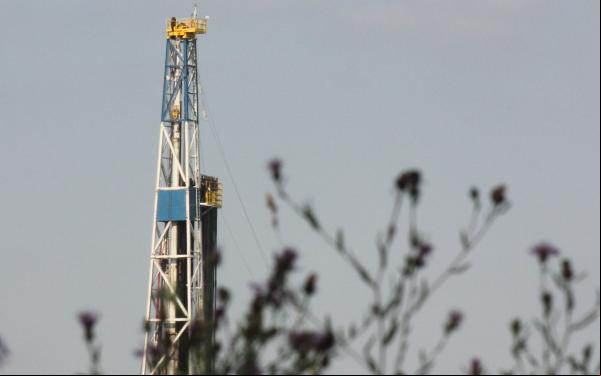
Inter-American Commission to analyze fracking’s impacts on human rights
The Inter-American Commission on Human Rights will hold an informative hearing on October 3, 2018 to better understand the situation of fracking in the Americas and the human rights violations it’s causing. The hearing is being held in response to a request brought forth by 126 Latin American organizations, united in the Latin American Alliance on Fracking. The hearing will take place in Boulder, Colorado during the Commission’s 169th period of sessions. In it, human rights defenders and representatives of affected communities will present detailed information on the documented human rights impacts, as well as the potential risks, of fracking in Latin America. The Alliance seeks to propose a series of recommendations to the Commission and governments of the region in order to guarantee human rights when faced with the exploitation of unconventional hydrocarbon reserves. According to the hearing request, there are approximately 5,000 fracking wells throughout Latin America. In Argentina, there are roughly 2,000 wells. In Chile, according to official data, 182 wells have been approved, the large majority in Tierra del Fuego. In Mexico, there are more than 3,350 fracking wells, although the signatory organizations indicated there are challenges in of access to this information. In Brazil and Colombia, contracts have been signed that allow for exploration and exploitation. In Bolivia, prospecting and sample studies of unconventional deposits have begun. Organizations from Argentina, Bolivia, Brazil, Colombia, Costa Rica, Chile, Ecuador, Mexico, Paraguay, Peru and Uruguay signed the request for a hearing before the Commission in July. “Fracking’s advance in Latin America is being carried out blindly because neither the chemicals used, nor their synergistic effects, nor the actual and potential risks, nor the effectiveness of mitigation measures are known with any certainty,” explained Claudia Velarde, attorney with the Interamerican Association for Environmental Defense (AIDA). “What is known is the damage fracking causes to the environment, the quantity and quality of water, and the impacts it has on health and human rights.” While fracking is promoted across Latin America, various nations, states and provinces of Europe, the Americas and Oceania have banned the technique due to the negative impacts it has had on the environment and public health. The request to the Commission emphasizes, “none of the nations where fracking has been implemented have a comprehensive knowledge of the irreversible damage it causes to the environment and the lives of individuals and communities. However, abundant scientific evidence exists on fracking’s negative impacts due to the extensive use of the technique in the United States.” Follow news from the hearing with the hashtag #AméricaSinFracking PRESS Victor Quintanilla, AIDA (Mexico), [email protected], +521 5570522107
Read more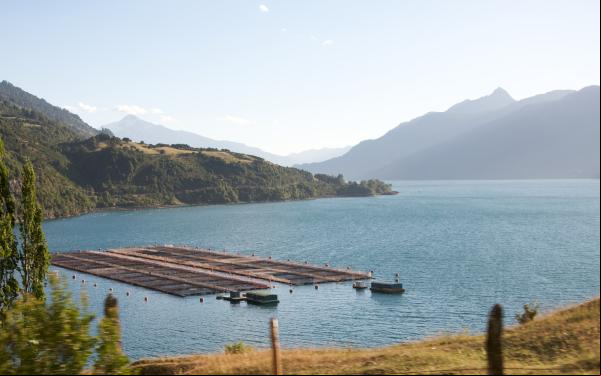
Calling on Chile to stop salmon industry’s impact on Patagonia
AIDA alerted six international treaties to the damages the salmon industry is causing to Chilean Patagonia, and requested that they visit the Magallanes region to investigate the impacts and urge the Chilean government to protect the region. Santiago, Chile. In an Urgent Alert to international authorities, the Interamerican Association of Environmental Defense (AIDA) requested that experts visit the Magallanes region of Chilean Patagonia—where the expansion of the salmon industry is causing serious environmental damage—and asked them to urge the government to adopt appropriate measures to address them. “These six treaties were signed and ratified by Chile to protect its natural wealth, including the endemic species of the Magallanes region,” said Florencia Ortuzar, AIDA attorney. “The government is violating these agreements by failing to prevent the salmon industry from damaging the country’s marine environments.” The document details the principal damages caused by the salmon farms in Magallanes, among them: contamination of the seabed from large amounts of fish feces, excess chemical waste, and the over-saturation of waters with fish, all of which create oxygen-free dead zones where marine life cannot survive. The alert was sent to authorities in charge of the Convention on Biological Diversity, the Convention on the Conservation of Migratory Species of Wild Animals, the International Whaling Commission, the Inter-American Convention for the Protection and Conservation of Sea Turtles, the United Nations Convention on the Law of the Sea, and the Antarctic Treaty. The situation was also reported to the Food and Agriculture Organization of the United Nations and the World Health Organization. The Magallanes region is home to many protected species, including the blue whale, the sperm whale, the Magellanic penguin, the elephant seal, the leatherback turtle, the Southern dolphin and the Chilean dolphin. A remote and pristine area, Magallanes is poorly studied and it is thus virtually impossible to understand the consequences of the industry’s current and potential impacts. “More than half the farms operating in Magallanes are causing a total or partial lack of oxygen in the waters,” explained Ortuzar. “This demonstrates that the salmon concessions are being granted without the scientific needed to guarantee they won’t cause environmental damage.” Another problem raised in the alert is the excessive use of antibiotics in Chilean salmon farms—higher than that of any other salmon-producing nation. This excessive use provokes antimicrobial resistance in humans, a problem that has been recognized by the World Health Organization as a serious threat to global public health. In the alert, AIDA requested the international authorities: the Chilean State in the investigation of the salmon industry’s real and potential impacts on Patagonia; remind Chile of its obligations under the treaties; investigate the damage described; and, when needed, request the application of sanctions and the suspension or cancellation of concessions in Magallanes. Consult the Urgent Alert. Find more information on the case here. press Victor Quintanilla (Mexico), AIDA, [email protected], +521 5570522107
Read more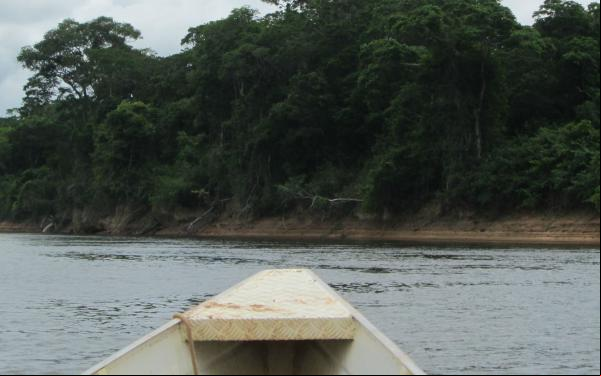
In Xingu management plan, Brazil leaves communities without water
The proposed Xingu River management plan puts at risk the people, plants and animals of the Amazon region. AIDA requested that the Inter-American Commission on Human Rights urge Brazil to stop the plan and establish a socially and environmentally appropriate alternative. Washington, D.C. and Altamira, Brazil. By authorizing the construction of the Belo Monte Dam in the heart of the Amazon, the Brazilian government endorsed a management plan for the flow of the Xingu River that would leave the indigenous and riverine communities of the area without the water they need to survive. The plan is in a testing phase but is expected to be implemented next year, once all the turbines of the hydroelectric plant are installed. The Interamerican Association of Environment Defense (AIDA) sent a report to the Inter-American Commission on Human Rights detailing the serious socio-environmental risks of the plan. In it, we requested that the Commission urge Brazil to stop the plan’s implementation and create an alternative plan that guarantees biodiversity and protects the communities’ ways of life. “The authorized plan for the management of the river’s flow threatens the existence of indigenous and riverine communities, and places at risk of extinction the fish and the forests—natural resources on which the physical and cultural lives of the communities depend,” said Liliana Ávila, Senior AIDA Attorney. The plan, called a consensual hydrogram, establishes the volume of water that will through a specific part of the river, called the Vuelta Grande, and the part that will be diverted for energy production. It is intended to artificially reproduce the natural flow of the river in times of flood and drought. Norte Energía, the consortium in charge of the dam, proposes an average minimum flow rate of 4,000 cubic meters per second over the course of a year, and 8,000 cubic meters per second for the following year, beginning in 2019. It proposes a minimum flow rate of 700 cubic meters per second for the dry season. The report sent to the Commission, however, details scientific and social evidence that demonstrates that these water levels are significantly lower than the historical river flow and do not guarantee that fish and alluvial forests can survive the proposed reduction in the short- and medium-term. The evidence—which includes information from both the Brazilian Institute of the Environment and Renewable Natural Resources and community monitoring—also shows that some aquatic species, such as chelonians, can only feed and reproduce with minimum flows of 13,000 cubic meters per second in times of flooding, and that the volume proposed for the dry season could make the river unnavigable. “The management plan did not take into the monitoring done by the Juruna people in collaboration with the Federal University of the State of Pará and the Socio-environmental Institute (ISA),” said AIDA attorney Marcella Ribeiro. “In 2016, with water levels higher than those proposed, communities were already reporting the mass die-off of fish.” AIDA sent the report to the Commission as part of a formal complaint against the Brazilian State for the human rights violations caused by the dam’s construction. In May, together with partner organizations, we presented our final arguments in the case, evidencing damages already caused, including the forced displacement of indigenous and riverine communities, the massive death of fish, differentiated damages to men and women, and threats to the survival of the communities. Find more information on the case here. press s Victor Quintanilla (Mexico), AIDA, [email protected], +521 5570522107 Isabel Harari (Brazil), ISA, [email protected], +5561998261213
Read more